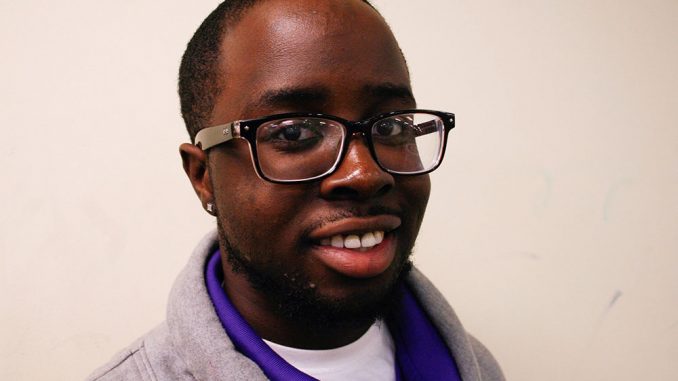
Even though the National Panhellenic Council has not yet celebrated its hundredth birthday, the 84-year-old organization has already welcomed Martin Luther King Jr., Jada Pinkett-Smith and Maya Angelou as members of the “Divine Nine” historically black Greek organizations.
Two members of Greek life continuing this legacy at Temple are Delta Sigma Theta sister Brandolyn Burks and Alpha Phi Alpha brother Mathos Sokolo.
As NPHC participants, Burks and Sokolo support the organization’s goals in the African-American community as they move forward this February during Black History Month, both as representatives of African-American Greek life.
The NPHC was established in the early 1900s, when disenfranchisement and racial segregation was prominent in society. The NPHC’s manifesto states that it strives to foster “unanimity of thought and action as far as possible in the conduct of Greek letter collegiate fraternities and sororities.”
From these goals, the NPHC founded the Divine Nine: Alpha Phi Alpha, Alpha Kappa Alpha, Kappa Alpha Psi, Omega Psi Phi, Delta Sigma Theta, Phi Beta Sigma, Zeta Phi Beta, Sigma Gamma Rho and Iota Phi Theta.
“My organization was founded by 22 African-American collegiate women who wanted to make a difference in the community because of the racial injustices they were facing,” Burks, a senior health information management major, said.
Burks is vice president of the Delta Sigma Theta sorority, a position of leadership she said she dedicates to assisting her sisters in Temple’s Epsilon Delta chapter. Delta Sigma Theta was founded at Howard University in 1914 and its 100-year-old goals are still relevant to Burks, she said.
She grew up among people she called inspirational African-American women of Delta Sigma Theta.
“The initial goal of my organization was to uplift the African-American community, with an emphasis on women through sisterhood, public service and scholarship,” Burks said. “They had a vision to fight injustices and be a part of a positive change. Being a part of Greek life has showed me how to empower myself and others around me.”
With more than 300,000 predominantly African-American public service-oriented women to call sisters, Burks cited her organization’s focus on business and professionalism with helping her public speaking skills and self-esteem as an African-American woman. It is this consistent support that Burks said reminds her that Black History Month is not the sole commemoration of African-American heritage.
“If we [Delta Sigma Theta] are not recognizing black history and black excellence on a daily basis, then we are not doing our job in [upholding] the values and principles set by our founders,” Burks said.
Burks is also a part of the National Council of Negro Women, which, like Delta Sigma Theta, aims to provide a strong coalition of African-American women. Burks said this togetherness is part of what allows for the Divine Nine’s success.
“Although we are a part of different organizations, we were founded on similar beliefs,” Burks said. “We recognize and understand the need to unite African Americans to promote change that is needed and deserved for all types of people.”
The Divine Nine has also shown Sokolo a feeling of unity, he said. The sense of community provided by the historically African-American Greek organizations is something he said he doesn’t believe he’d find elsewhere.
“[Joining the Divine Nine] has also opened up a great network for me,” Sokolo, a senior strategic communications major, said.

Sokolo is also chaplain, historian and corresponding secretary for Alpha Phi Alpha, the first Greek letter fraternity for African Americans. Founded in 1906 at Cornell University, its fraternity preamble states that it aspires to “a more perfect union among college men; to aid in and insist upon the personal progress of its members; to further brotherly love and a fraternal spirit within the organization.”
It is the “perfect union among college men” that most appeals to Sokolo, he said. He joined Alpha Phi Alpha after watching his god-brother acquire what Sokolo called a certain confidence that is recognizable in Temple Alpha Phi Alpha members. He said he greatly appreciates Alpha Phi Alpha’s focus on self-improvement and advancement.
“Alpha Phi Alpha has been one of many components that uplifts the African-American community, from the Civil Rights Movement to giving back to the [community at present],” Sokolo said. “Our organizations [educate the community] about different issues and epidemics that are plaguing [it] from within.”
This February, in honor of Black History Month, Alpha Phi Alpha aims to remember its history in the African-American community during fraternity events.
“In 1906, when our fraternity was founded, it was a time where African Americans were not accepted,” Sokolo said. “It was a drastic step for our seven African-American founding fathers to start a fraternity that uplifts the community.”
Lora Strum can be reached at lora.strum@temple.edu.



Be the first to comment